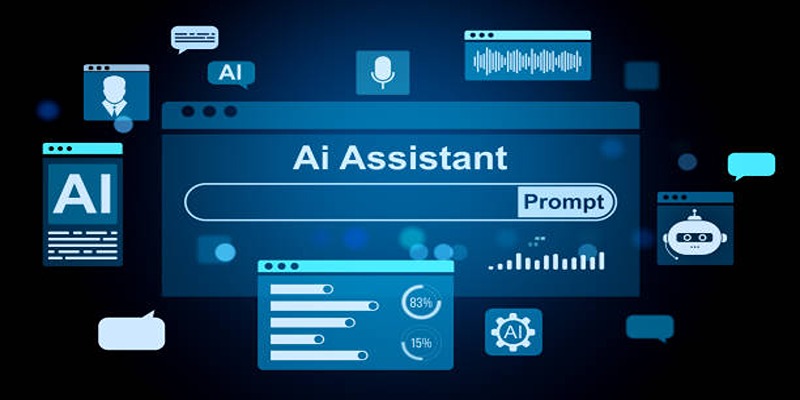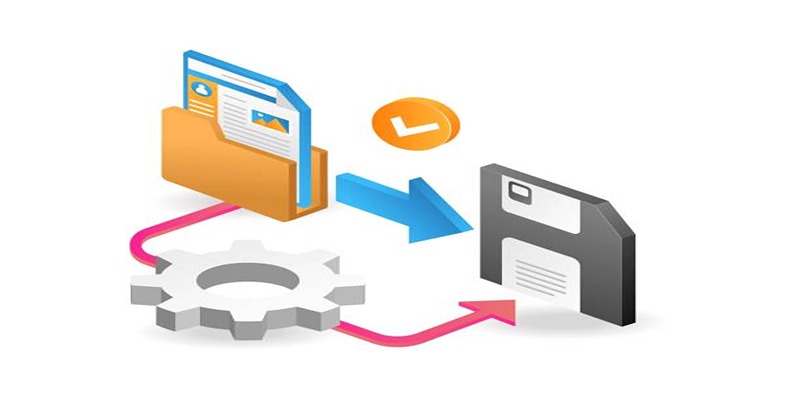The Role of Web-Based AI Assistants in Tomorrow's Digital World
Advertisement
The digital world is evolving rapidly, with web-based AI assistants leading the way. These smart tools have transformed how we work, shop, and learn, but their potential is far from fully realized. From boosting business productivity to creating personalized user experiences, AI assistants are revolutionizing possibilities. This blog dives into their expanding role and highlights how they’ll drive innovation and shape the future of tomorrow’s digital landscape.
What Are Web-Based AI Assistants?

Web-based AI assistants combine artificial intelligence (AI) with web-enabled capabilities to help users complete tasks, access information, and make decisions efficiently. Unlike traditional software, these assistants use machine learning, natural language processing (NLP), and automation to understand user needs and respond intelligently.
Popular examples of web-based AI assistants include Siri and Google Assistant along with Alexa and ChatGPT but specific industries also have tailored AI assistants developed for their needs like e-commerce support and customer service assistance. The main advantage of web-based AI assistants stems from their ability to operate through various online environments. These assistants give users hassle-free browsing experiences through any device from smartphones to tablets to desktop machines when they stay connected to the internet.
Key Functions of Web-Based AI Assistants
Web-based AI assistants already serve diverse roles across industries, from scheduling appointments to managing workflows. Here are some of their most notable functions:
1. Personal Productivity
AI assistants excel in helping users streamline their personal and professional responsibilities. Tools like Microsoft’s Cortana integrate with calendars to schedule meetings, remind users of deadlines, and even suggest optimal times for productivity breaks.
AI-powered platforms, such as Grammarly or Jasper, enhance writing quality by correcting grammar, suggesting better phrasing, or generating creative content. This helps users write more efficiently while maintaining quality.
2. Customer Interaction
Web-based chatbots and virtual assistants have become crucial components of customer service strategies. These tools provide around-the-clock support, answer FAQs, troubleshoot issues, and handle inquiries. Platforms like Zendesk and Intercom use web-based AI bots to assist businesses in creating a dynamic and responsive customer experience.
3. Online Shopping Experiences
AI-supported shopping bots are changing the way consumers browse and buy online. Assistants like eBay ShopBot and Facebook Messenger bots help users identify products, compare prices, and complete purchases without navigating multiple websites.
4. Educational Support
Teachers, students, and online learners are benefiting immensely from AI assistants. Khan Academy, powered by OpenAI’s GPT tech, provides students with interactive study guides and personalized learning journeys.
5. Task Automation
AI assistants reduce manual work by automating repetitive tasks like data entry, email categorization, and stock inventory management. Shopify Ping, for example, offers helpful assistant features for online merchants managing orders, inventories, and customer conversations.
Benefits of Web-Based AI Assistants in the Digital World
Why are businesses and individuals turning to web-based AI assistants? Here’s why their impact is proving to be so profound:
Enhanced Efficiency Across the Board
Time is a finite resource, but AI assistants stretch its value. By automating routine activities, they allow users to focus on higher-value tasks. For instance, small business owners can automate order confirmations or generate customer invoices in a fraction of the time it would take manually.
Personalization at Scale
Modern AI assistants rely on algorithms to analyze user preferences and behavior, delivering tailored experiences at scale. Whether it’s Netflix recommending your next binge-worthy series or an e-commerce store showing custom product suggestions, personalization boosts satisfaction and sales.
Cost Savings for Businesses
Deploying AI assistants eliminates many operational costs. Instead of hiring a round-the-clock customer support team, businesses save money by leveraging virtual assistants to maintain 24/7 availability.
Accessibility for All
AI assistants are increasingly improving accessibility for individuals with disabilities. Tools like Voiceflow interact seamlessly with voice commands, enabling visually impaired users to browse the web independently.
Better Decision-Making with Data Insights
AI assistants can quickly analyze massive sets of data, making it easier to extract actionable insights. Business owners, for instance, can use these insights to refine marketing campaigns or create customer-driven service strategies.
How Web-Based AI Assistants Will Evolve Tomorrow

While AI assistants have already reshaped many aspects of our lives, their future holds even greater promise. Here’s a glimpse into what’s next:
Smarter Conversations with Advanced NLP
One key focus of AI development is improving Natural Language Processing capabilities. This will allow assistants to engage in deeper, more nuanced conversations. Imagine a customer service bot capable of understanding humor, regional dialects, or emotional sentiment during an interaction.
Proactive Assistance
AI assistants of the future won’t just respond to commands; they will anticipate user needs. For instance, they might provide shopping lists based on your fridge’s contents or recommend gym classes near your home based on your fitness goals.
Greater Integration with IoT
As the Internet of Things (IoT) expands, AI assistants will integrate seamlessly with smart home devices, wearables, and even vehicles. Picture an AI assistant syncing data from your smartwatch, smart fridge, and smart car to suggest healthy meal deliveries on your commute.
Focus on Ethical Design
Another area for future AI innovation lies in trust and transparency. Developers will increasingly recognize the importance of designing AI to prevent biases, respect data privacy, and offer clear disclosures about how personal data is used.
Industry-Specific Assistants
More bespoke solutions are on the horizon as businesses build AI assistants tailored to specific industries. For example, legal services may see assistants capable of drafting contracts, while the medical field could benefit from AI diagnosing conditions and reminding patients to take medication.
Conclusion
Web-based AI assistants are driving a paradigm shift in how we interact with technology. Their ability to enhance efficiency, deliver personalization, and reshape industries makes them essential tools in tomorrow’s digital world. If your brand hasn't begun exploring this avenue yet, you're missing out on an opportunity to stay ahead of the curve. Curious about how AI can transform your life or workflow? Start by exploring modern tools like Jasper to experience their full potential!
On this page
What Are Web-Based AI Assistants? Key Functions of Web-Based AI Assistants 1. Personal Productivity 2. Customer Interaction 3. Online Shopping Experiences 4. Educational Support 5. Task Automation Benefits of Web-Based AI Assistants in the Digital World Enhanced Efficiency Across the Board Personalization at Scale Cost Savings for Businesses Accessibility for All Better Decision-Making with Data Insights How Web-Based AI Assistants Will Evolve Tomorrow Smarter Conversations with Advanced NLP Proactive Assistance Greater Integration with IoT Focus on Ethical Design Industry-Specific Assistants ConclusionAdvertisement
Related Articles

Top 5 Split Screen Video Editors for Windows 10 and Mac Users

How Digital Twin and Simulation Tools Are Transforming Industries

A Comprehensive Guide to the Best ERP Software in 2025

6 Best Photo Editing Apps of 2025 for iOS and Android Users

Top 6 Media Converter Ultimate Tools for Quick File Conversion

The Role of Web-Based AI Assistants in Tomorrow's Digital World

SurveyMonkey Vs. Google Forms: Which Survey Tool is Best for 2025?

Top 6 Chatbot Builders to Simplify Your Business Communication

Top Sony Vegas Plugins to Enhance Your Video Editing Experience

Revolutionize Your Workflow with These AI Productivity Tools in 2025

Top 8 Excel Alternatives to Simplify Your Spreadsheet Tasks in 2025

 knacksnews
knacksnews